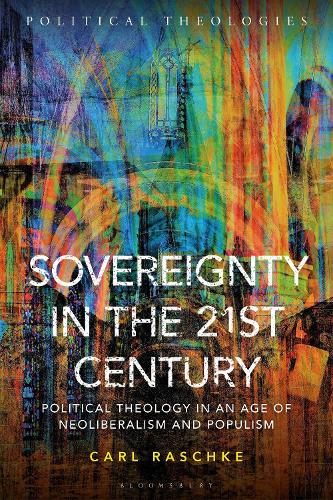
Sovereignty in the 21st Century: Political Theology in an Age of Neoliberalism and Populism
(Paperback)
Available Formats
Publishing Details
Sovereignty in the 21st Century: Political Theology in an Age of Neoliberalism and Populism
By (Author) Carl Raschke
Bloomsbury Publishing PLC
Bloomsbury Academic
30th April 2026
United Kingdom
Classifications
Professional and Scholarly
Non Fiction
Political science and theory
Political structures / systems: democracy
Political leaders and leadership
Physical Properties
Paperback
240
Width 156mm, Height 234mm
Description
When God is dead and governments themselves are increasingly subject to the power of global corporations, massive movements of peoples, transnational political upheavals, and ecological disasters, what does sovereignty mean for the 21st century Sovereignty in the 21st Century is Carl Raschkes deep theoretical dive into the meaning of sovereignty in both its historical and contemporary settings, showing how the idea can be expanded beyond politics and offer emancipatory strategies for previously marginalized peoples.
Picking up Carl Schmitts idea of sovereigntys divine associations making it an implicitly theological concern, Raschke explains how political and religious thought have always been intertwined. These intertwined strands find their relevance today in debates around class, race and domination, making the question of sovereignty not just a political but a social and economic one. Bringing to light the ways in which great transnational conflicts today are not between authoritarianism and democracy but between neoliberalism and populism, this book brings us closer to a profound understanding of what we truly mean by democracy, or popular sovereignty in the 21st-century.
Reviews
Carl Raschke's book "Sovereignty in the 21st Century" is a passionate plea for a new concept of sovereignty in the face of neoliberal constraints and identity logics that determine the political events of our time. In his innovative book, Raschke argues in favour of a universal recognition of human dignity, which will go hand in hand with new forms of community. -- Kurt Appel, University of Vienna, Austria
In this fascinating discussion the idea of sovereignty is subjected to fresh analysis, linking earlier treatments with the challenges presented today by current social and political developments. It is an arresting contribution to political theory that marshals a wide range of fertile ideas and sources. -- T R S Allan, Professor Emeritus of Jurisprudence and Public Law, University of Cambridge, UK
Can sovereignty be saved From Aristotle and Giorgio Agamben to Slavoj iek, Carl Raschke offers a wide-ranging critical, erudite analysis of neoliberalism and other systems of oppression that have distorted and undermined our polities. Raschke passionately argues for a theory of sovereignty founded not on varied societal and political acrimonious divisions, but rather on mutual recognition of the infinite worth of all human beings. Will we have the courage to enact this vision -- Ryan LaMothe, Saint Meinrad Seminary and School of Theology, USA
Author Bio
Carl Raschke is Professor of Philosophy of Religion and Critical Theory at the University of Denver, USA.
